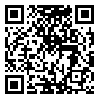BibTeX | RIS | EndNote | Medlars | ProCite | Reference Manager | RefWorks
Send citation to:
URL: http://jmed.ssu.ac.ir/article-1-538-en.html
Introduction: Improvement of students’ clinical decision making is one of the main challenges in medical education. There are numerous ways to improve these skills. The aim of this study was to examine the effect of algorithm-based learning on clinical decision making abilities of medical emergency students.
Method: in this experimental study, twenty five medical emergency students were randomly assigned to algorithm based learning group (n=13) and control group (n=12). Student in algorithm-based learning group were educated the diagnosis and treatment of selected medical emergency situation with algorithmic approach. Education in the control group was conducted by a routine lecture, along with copies of educational content. Three-hour training period was held for both groups (two separate sessions with an interval day). After intervention, clinical decision making of the students in both group were measured by clinical scenarios and clinical decision making self-efficacy scale.
Results: The mean of acquired scores from clinical scenarios among students in algorithm-based learning group was 17.50 (±1.67) and in the control group was 14.50 (±2.63). The differences was statistically significant (t=0.006, P=0.006). The students in algorithm-based learning group had better scores in the clinical decision making in terms of self-efficacy scale and it was 13.30 (1.57) and in the control group this mean was 10.32 (3.05). In this case, the differences was statistically significant (t=3.01, P=0.009).
Conclusion: algorithm-based learning is effective in improvement of clinical decision making and applying of this method along with other educational methods could promote students’ clinical decision making especially in medical emergency situations.
Received: 2015/04/14 | Accepted: 2015/09/6 | Published: 2015/11/28
| Rights and permissions | |
 |
This work is licensed under a Creative Commons Attribution-NonCommercial 4.0 International License. |





